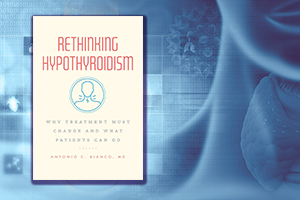



| By Dr. Ronald Hoffman
Antimicrobial resistance is an issue well known to the medical community at large. It is, however, of paramount importance within the realm of holistic medicine; in addition to having the potential to further aggravate resistance to various antibiotics, resistance has numerous potential neurological and gastroenterological ramifications.
Initially confined to hospitals, antimicrobial resistance is becoming a common problem in primary care settings.
As upper respiratory infections move down through the respiratory tract, they can progress from the common cold to bronchitis and, finally, pneumonia. Three specific bacteria are almost exclusively responsible for all of the bacterial components of these infections: Streptococcus pneumoniae, Haemophilus influenza and Moraxella catarrhalis. These same three bacteria are responsible for most throat, ear, tonsil and sinus infections. The consequences of increasing drug resistance are far reaching since bacterial infections of the lower respiratory tract are the major cause of death from infectious disease in the United States. (Fn1)
Certain upper respiratory infections can be self-limited, even when primarily bacterial in origin. Additionally, many of these infections may be viral in origin in which case treatment with antibiotics is superfluous. Judicious use of antibiotics and careful selection of appropriate medications (a narrow-spectrum drug), when they are in fact indicated, can help ameliorate resistance.
Even exacerbations of acute exacerbations of chronic bronchitis (AECB) are usually viral in origin. In cases where the infection is indeed primarily bacterial, it usually resolves without the traditional course of antibiotic therapy. Patients who have received antibiotics in the past for acute bronchitis may insist on the same prescription, not realizing that the previous episode would have run its course, often in about 14 days, without the drug. (Fn2) However, in the case of elderly patients, diabetics, smokers or patients with COPD, antibiotic therapy is usually indicated.
Here are some guidelines that can be helpful in determining appropriate treatment protocols:
– When possible, obtain a culture before treating. Resist routine requests for antibiotics unless the infection is long-standing.
– Use narrow-spectrum antibiotics.
– Implement careful hand-washing protocols. (Most of these bacteria are transmitted via skin contact, not via inhalant mechanisms.)
– Our focus, however, is largely on prevention. Particularly at this time of year, when the weather changes precipitously from day to day, enhancing the immune system can obviate the need for treatment or at least lessen the severity of an infection. Typically, we add some of the following immune- enhancing supplements to vitamin C, EPA/DHA and Foundation Formula:
Olive Leaf Extract: Elenolic acid is an extract from olive leaves that can act as a potent bactericidal agent: It can kill pathogenic microbes. It works by interfering with the pathogenic amino acid sequences by preventing them from reproducing. (It also may have anti-viral properties).
Transfer Factor: Bovine colostrum extract.
Culturelle: Lactobacillus GG helps control overgrowth of harmful bacteria by increasing the relative number of normal intestinal flora. This specific lactobacillus adheres to the intestinal tract and can sustain its growth there for up to five days. Healthy intestinal flora can provide a physiologic barrier that helps prevent the spread of pathogens into the bloodstream.
Footnote 1) Treating Respiratory Tract Infections in the Age of Resistance, JAAPA Supplement, Fall, 2001, p. 3.
Footnote 2) ibid. p.10.
Though we think of declining estrogen as the hallmark of menopause, it's actually common for…

Up to 12 percent of Americans have ulcers at some point in life. Peptic ulcers…
Gallbladder disease is a modern illness. An estimated 20 million Americans have gallbladder disease. The…

Dr. Antonio Bianco, recipient of the American Thyroid Association’s John B. Stanbury Thyroid Pathophysiology Medal,…

There’s a misconception among low-carb dieters. Many people believe a low-carb diet is much higher…

New, more powerful weight loss drugs: Drugs like Wegovy, Rybelsus, Ozempic and Mounjaro/Zepbound are revolutionizing…

Q&A with Leyla, Part 1: ‘Good’ Bacteria

Our virtual voicemail is open 24/7, so there's no need to wait to submit your questions for Dr. Hoffman. Leave a message, and you may hear your question featured on the Intelligent Medicine radio program!